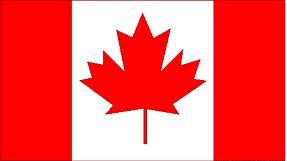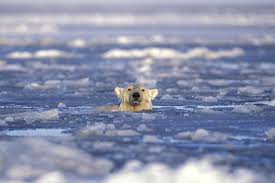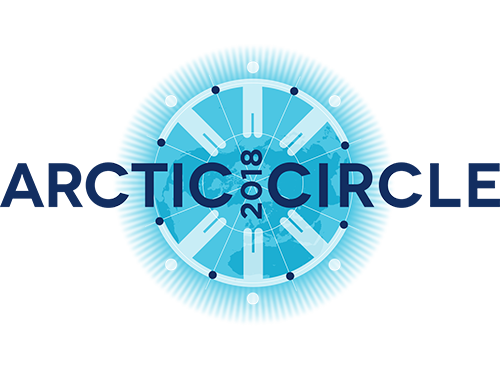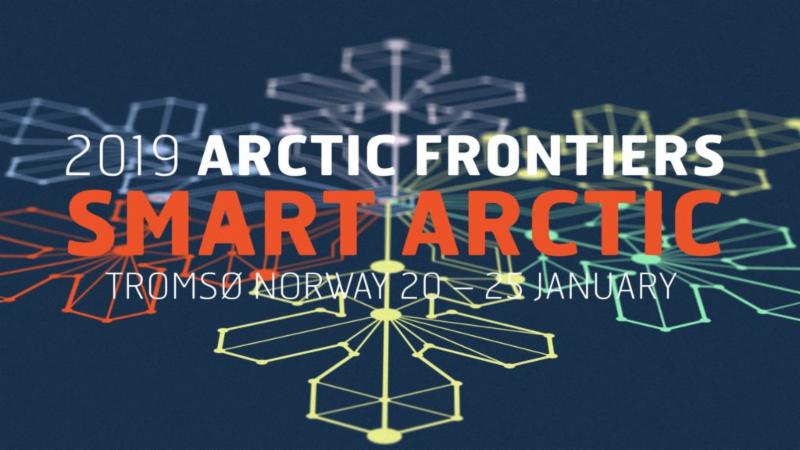|
|
|
|
|
|
|
|
The second Arctic Biodiversity Congress is hosted by the Conservation of Arctic Flora and Fauna (CAFF), the biodiversity working group of the Arctic Council, and the Ministry of the Environment, Finland. The second Arctic Biodiversity Congress will build on the success of the first Congress, held in 2014 in Trondheim, Norway, and will bring together scientists, policymakers government officials, Indigenous representatives, Traditional Knowledge holders, industry, non-governmental organizations, and others to promote the conservation and sustainable use of Arctic biodiversity.
|
Media
 String of Radar Stations in Canadian Arctic Nearly Obsolete- and Modernizing Them Will Cost Billions. String of Radar Stations in Canadian Arctic Nearly Obsolete- and Modernizing Them Will Cost Billions. The white domes that rise from the tundra look innocuous enough, and yet they play a critical role in protecting millions of Canadians and Americans thousands of kilometers away. Inside, where photographs are forbidden, they are like a time capsule from the late 1980s, the décor still reflecting the late Cold War era when the Canadian and U.S. governments established the North Warning System, the chain of mostly unmanned radar sites of which the Cambridge Bay facility is a part. Spanning Canada's northern coastline across the Yukon, Northwest Territories, Nunavut and Labrador, the radar sites exist to detect potential threats entering North America's airspace, transmitting a stream of data to military command centers in the south. National Post
Hundreds of Scientists, Leaders in Lapland for Arctic Biodiversity Congress. Finland is hosting the Arctic Biodiversity Congress this week, where 450 scientists, government officials, indigenous peoples and experts from 26 countries are discussing safeguarding the Arctic environment. Finland is chair of the Arctic Council from 2017-2019, and hosting two high-level environmental meetings this month. Finnish President Sauli Niinistö was also in attendance at this week's congress, which began, well, above the Arctic Circle, in Lapland's city of Rovaniemi on Tuesday. YLE News
 Polar Bears Gorged on Whales to Survive Past Warm Periods; Won't Suffice as Climate Warms. Polar Bears Gorged on Whales to Survive Past Warm Periods; Won't Suffice as Climate Warms. Polar bears likely survived past warm periods in the Arctic, when sea ice cover was low, by scavenging on the carcasses of stranded large whales. This food source sustained the bears when they were largely restricted to land, unable to roam the ice in search of seals to hunt. A new study led by the University of Washington found that although dead whales are still valuable sources of fat and protein for some polar bears, this resource will likely not be enough to sustain most bear populations in the future when the Arctic becomes ice-free in summers, which is likely to occur by 2040 due to climate change. The results were published online Oct. 9 in the journal Frontiers in Ecology and the Environment. EurekAlert! In the Absence of Bees, Flies are Responsible for Pollination in the Arctic Region. Mikko Tiusanen, MSc, investigated in his doctoral dissertation the structure and functioning of plants and their pollinators in Arctic regions. "Up north, there are very few apids, such as bees and bumblebees, so other insect groups bear the main responsibility for pollination," explains Tiusanen. EurekAlert! Sophie Gregoire Trudeau Officially Names First Arctic and Offshore Patrol Ship. Sophie Grégoire Trudeau presided over the official naming of Canada's first Arctic and offshore patrol ship in Halifax on Friday afternoon, praising the bravery of the veteran sailor for whom it is named. HMCS Harry DeWolf is named in honour of a vice-admiral who oversaw the rescue of 42 sailors from HMCS Athabaskan on April 29, 1944, during the Second World War... Harry DeWolf is the first of at least five Arctic and offshore patrol vessels tasked with patrolling Canadian waters, including the Arctic. CBC News
|
|
Future Events
Canada Permafrost Association Annual General Meeting, October 10-12, 2018 (Whitehorse, Yukon Canada). The Canada Permafrost Association (CPA) is being formed to address the multidisciplinary nature of permafrost-- bridging natural and social sciences, engineering, and governments. A central goal of the CPA is to assist in the transfer of knowledge between disciplines and across various demographics. This will better equip Canadians to respond to permafrost-related problems. As the inaugural meeting of the CPA, participants will take part in some of the formative discussions of the Association. In addition, there will be opportunities for participants to present research findings, keynote addresses and a field trip.
 Arctic Circle Assembly, October 2018 (Reykjavik, Iceland). The annual Arctic Circle Assembly is the largest annual international gathering on the Arctic, attended by more than 2000 participants from 60 countries. It is attended by heads of states and governments, ministers, members of parliaments, officials, experts, scientists, entrepreneurs, business leaders, indigenous representatives, environmentalists, students, activists and others from the growing international community of partners and participants interested in the future of the Arctic. Arctic Circle Assembly, October 2018 (Reykjavik, Iceland). The annual Arctic Circle Assembly is the largest annual international gathering on the Arctic, attended by more than 2000 participants from 60 countries. It is attended by heads of states and governments, ministers, members of parliaments, officials, experts, scientists, entrepreneurs, business leaders, indigenous representatives, environmentalists, students, activists and others from the growing international community of partners and participants interested in the future of the Arctic.
Arctic Science Forum Associated with the 2nd Arctic Science Ministerial, October 25, 2018 (Berlin, Germany and via webcast). How vulnerable and how resilient are nature and the people of the Arctic region? How well do we understand the regional and global dynamics which are driving change in the Arctic? What impact will change in the Arctic have on us? These and other questions are the focus of this two-day conference. It will take interdisciplinary research in the Arctic to gain an understanding of past and future processes - a complex and cost-intensive venture. This makes an international network of Arctic research so important for delivering better results. Cooperation in research, the exchange of data, collaborative observation and monitoring schemes - international cooperation is imperative in research on the Arctic.
Only the Science Forum, on October 25th, will be webcast. The Arctic Ministerial, on October 26th, will NOT be webcast.
Maritime & Arctic Security & Safety Conference (MASS18) "Arctic Technology" November 15-16, 2018 (Newfoundland & Labrador Canada). Now in its sixth year, MASS has gained an international reputation as a must-attend event to gain a wide perspective on challenges, opportunities and policies related to the Arctic and North Atlantic maritime environments. The aim of this Government of Canada and the Government of Newfoundland and Labrador supported international conference is to promote stakeholder collaboration, technological innovation, harsh environment research & development, and world-class education efforts that are contributing to both Maritime and Arctic issues. This two day conference will draw a diverse group of speakers and attendees representing government, military, Canadian and U.S. Coast Guard, industry, academic leaders, Northern Leaders, research and other key stakeholders. We hope you can join us to be a part of this important dialogue
American Geophysical Union Fall meeting, December 10-14, 2018 (Washington, DC USA). The AGU 2018 Fall Meeting will mark another dynamic year of discovery in Earth and space science, serve as the advent of AGU's Centennial year, and provide a special opportunity to share our science with world  leaders in Washington, D.C. As the largest Earth and space science gathering in the world, the Fall Meeting places you in the center of a global community of scientists drawn from myriad fields of study whose work protects the health and welfare of people worldwide, spurs innovation, and informs decisions that are critical to the sustainability of the Earth.
ArcticNet: Annual Scientific Meeting 2018, December 10-14, 2018 (Ottawa, ON Canada). Canada's North is experiencing unprecedented change in its sea and terrestrial ice, permafrost and ecosystems under the triple pressures of climate change, industrialization and modernization. The impacts of these pressures can be seen on food and energy security, shipping, sovereignty, northern community health and well-being, and sustainable development and resource exploitation. All these issues have brought the North to the forefront of national and international agendas. Building on the success of its previous Annual Scientific Meetings and International Arctic Change Conferences, the Arctic Network of Centers of Excellence announces the 14th ArcticNet Annual Scientific Meeting.
 Arctic Frontiers, January 20-25, 2019 (Tromso, Norway). The Arctic Frontiers is a global scientific conference on economic, societal, and environmental sustainable growth. This year's theme will be "Smart Arctic," with a pan-arctic emphasis, and an effort to build new partnerships across nations, generations and ethnic groups. Arctic Frontiers provides a forum for dialogue and communication between science, government and industry. The plenary program will have five main sessions: State of the Arctic, Blue Growth, Smart Solutions, Bridging the Gap, and Arctic business prospects. An abstract-driven science program will address Plastics in the Ocean, the Future of Governance and Handling Vulnerability in Arctic Ecosystems, State of the Arctic and A Smart Arctic Future.
 of the AAG includes over 8,500 geographers converging from the U.S., Canada, and nearly 60 other countries in a typical year including geographers, GIS specialists, environmental scientists, and other leaders for the latest in research and applications in geography, sustainability, and GIScience. of the AAG includes over 8,500 geographers converging from the U.S., Canada, and nearly 60 other countries in a typical year including geographers, GIS specialists, environmental scientists, and other leaders for the latest in research and applications in geography, sustainability, and GIScience.
|
|

  
4350 N. Fairfax Drive, Suite 510
Arlington, VA 22203, USA
External links in this publication, and on the USARC's World Wide Web site ( www.arctic.gov) do not constitute endorsement by the US Arctic Research Commission of external Web sites or the information, products or services contained therein. For other than authorized activities, the USARC does not exercise any editorial control over the information you may find at these locations. These links are provided consistent with the stated purpose of this newsletter and the USARC Web site.
|
|
|
|
|
|
|
|
|
 String of Radar Stations in Canadian Arctic Nearly Obsolete- and Modernizing Them Will Cost Billions. The white domes that rise from the tundra look innocuous enough, and yet they play a critical role in protecting millions of Canadians and Americans thousands of kilometers away. Inside, where photographs are forbidden, they are like a time capsule from the late 1980s, the décor still reflecting the late Cold War era when the Canadian and U.S. governments established the North Warning System, the chain of mostly unmanned radar sites of which the Cambridge Bay facility is a part. Spanning Canada's northern coastline across the Yukon, Northwest Territories, Nunavut and Labrador, the radar sites exist to detect potential threats entering North America's airspace, transmitting a stream of data to military command centers in the south. National Post
String of Radar Stations in Canadian Arctic Nearly Obsolete- and Modernizing Them Will Cost Billions. The white domes that rise from the tundra look innocuous enough, and yet they play a critical role in protecting millions of Canadians and Americans thousands of kilometers away. Inside, where photographs are forbidden, they are like a time capsule from the late 1980s, the décor still reflecting the late Cold War era when the Canadian and U.S. governments established the North Warning System, the chain of mostly unmanned radar sites of which the Cambridge Bay facility is a part. Spanning Canada's northern coastline across the Yukon, Northwest Territories, Nunavut and Labrador, the radar sites exist to detect potential threats entering North America's airspace, transmitting a stream of data to military command centers in the south. National Post Polar Bears Gorged on Whales to Survive Past Warm Periods; Won't Suffice as Climate Warms. Polar bears likely survived past warm periods in the Arctic, when sea ice cover was low, by scavenging on the carcasses of stranded large whales. This food source sustained the bears when they were largely restricted to land, unable to roam the ice in search of seals to hunt. A new study led by the University of Washington found that although dead whales are still valuable sources of fat and protein for some polar bears, this resource will likely not be enough to sustain most bear populations in the future when the Arctic becomes ice-free in summers, which is likely to occur by 2040 due to climate change. The results were published online Oct. 9 in the journal Frontiers in Ecology and the Environment. EurekAlert!
Polar Bears Gorged on Whales to Survive Past Warm Periods; Won't Suffice as Climate Warms. Polar bears likely survived past warm periods in the Arctic, when sea ice cover was low, by scavenging on the carcasses of stranded large whales. This food source sustained the bears when they were largely restricted to land, unable to roam the ice in search of seals to hunt. A new study led by the University of Washington found that although dead whales are still valuable sources of fat and protein for some polar bears, this resource will likely not be enough to sustain most bear populations in the future when the Arctic becomes ice-free in summers, which is likely to occur by 2040 due to climate change. The results were published online Oct. 9 in the journal Frontiers in Ecology and the Environment. EurekAlert!


